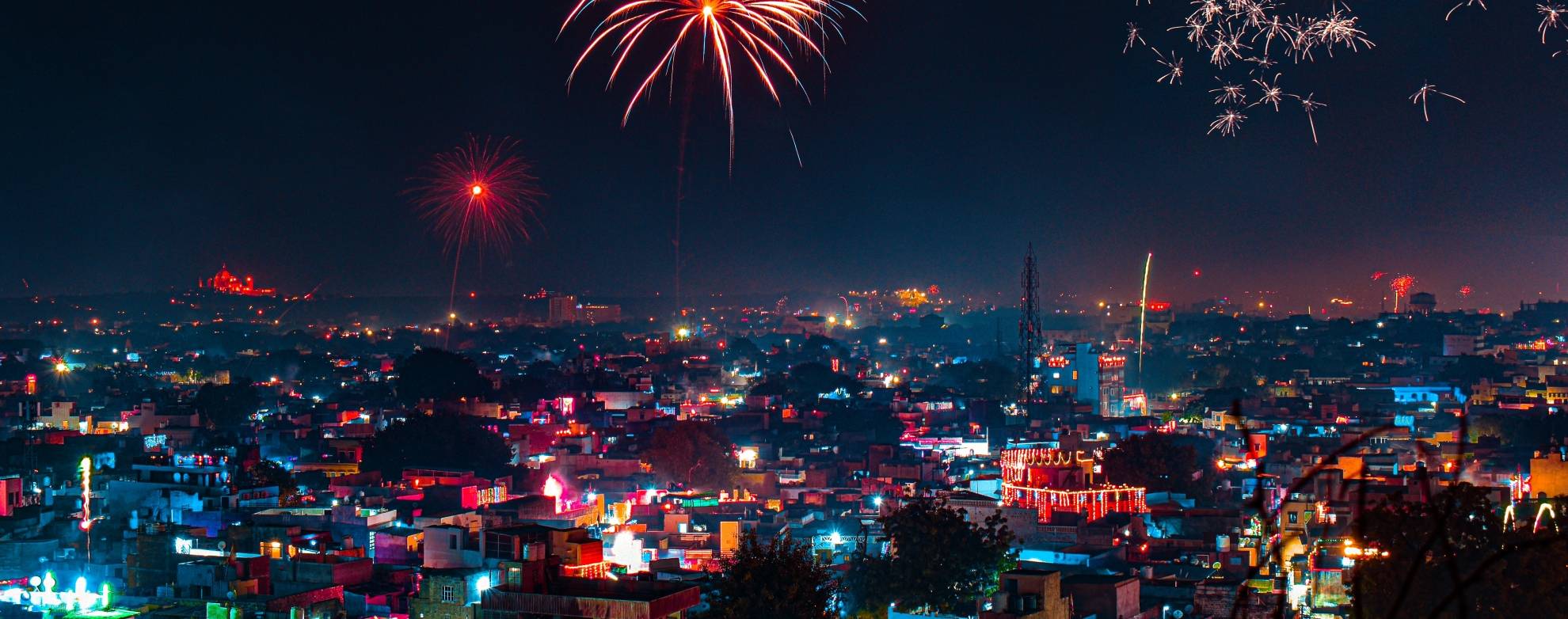7 national holidays from around the world that expats need to know about

Major national holidays are times of great joy and celebration – but expats may find they are also a time of travel and work disruption. Here are a few of the major celebrations – including religious and national holidays that expats may need to be aware of.
Christmas
Perhaps the most commercialized and widely known holiday is the combination of Christmas and New Year, as celebrated in most Christian cultures and many Western countries. While the New Year (according to the Gregorian Calendar) is based on a pagan celebration, the two effectively merge to create a ten-day period of celebration or disruption – depending on your perspective. Note also that other holidays may be associated with Christmas; in Scandinavian countries, for example, the Yuletide holiday is a cherished celebration of the Winter solstice, which occurs on 21 December.

Golden Weeks (China)
Some of the worst traffic jams in the world are to be seen on China’s roads during the start of October as China celebrates its National Day Golden Week. National Day itself is celebrated on 1 October, but many companies and government agencies close down for the week, to enable families to get together for the duration of the festivities. A second “Golden Week” also surrounds the Chines New Year festivities (which coincides with the new moon between 21 Jan and 20 February). These week-long celebrations were originally conceived to promote internal consumption and boost the economy, although some argue that the disruption caused to the economy outweighs these benefits. Nonetheless, unwary expats may find it hard to book flights or accommodation around these periods.
Golden Week (Japan)
Japan enjoys a similar convention with a week’s holiday taken in late April early May. It celebrates a number of notable dates, namely Showa Day on 29 April (commemorating Emperor Showa Hirohito 1926-1988), Constitution Memorial Day on 3 May, Greenery Day on 4 May and Children’s Day on May 5. Many companies close their offices and it is a popular time for foreign travel.
Ramadan
The month of Ramadan is the ninth month in the Islamic calendar, during which time all adult Muslims are expected to fast during daylight hours. Its end is signaled by the crescent moon, followed by the holiday of Eid-al-Fitr.
Expats in Islamic countries will already be aware of the need for cultural sensitivity. This is heightened during the holy month, and care should be taken not to offend or contravene cultural laws which, for example, forbid anyone to eat in public during daylight hours. Also expect restaurants to be particularly busy at night, for obvious reasons, and rush hour traffic to be intensified.

Diwali
Diwali is a five-day festival celebrated mainly by Hindus and Sikhs (as well as by some Buddhists in Nepal). It takes place between mid-October and mid-November and is a major celebration in the Indian sub-continent and known as the “Festival of Light”. This is why expats will see many homes decorated with candles and strings of lights. Hindus also wear brightly coloured clothes and gold jewellery in celebration – which ensures that there is something of a retail rush in the lead-up to the festival. Expats can join in with the dress code or even show appreciation for the culture by getting a temporary henna tattoo. Offices are typically closed during the period.
Easter/Semana Santa (Spain & Hispanic countries)
The festival of the Semana Santa (Holy Week in Spanish) is celebrated the week before Easter in many Catholic and Spanish-speaking countries. Festivities include parades and processions in the streets (especially the Spanish region of Andalucia where celebrations are noted for their flamboyance) and usually involve many businesses closing for the duration.
Easter itself is also observed in many other Christian countries, but to a lesser degree than Catholic countries. It is worth noting Easter for Orthodox Christians (in countries such as Greece, Lebanon, Russia and Bulgaria) occurs later in the year because the Julian Calendar is still in use.

Dia de los Muertos - Day of the Dead (Mexico)
Expats in Mexico need to be aware that the start of November may be disrupted by a key national holiday. Based on similar traditions to the Western Halloween, Dia de Los Muertos is when Mexicans honor loved ones that have passed. Homes are decorated with altars, bearing flowers and pictures of the deceased. The celebrations coincide with All Saints Day (1 November) and All Souls Day (2 November).
Respect and observe – and celebrate!
All of these events may cause disruption and make life difficult if you are planning on travelling or conducting business around these times of year. But expats should enjoy them too – they are causes for national celebration and are often spectacular experiences that expats will never forget.



